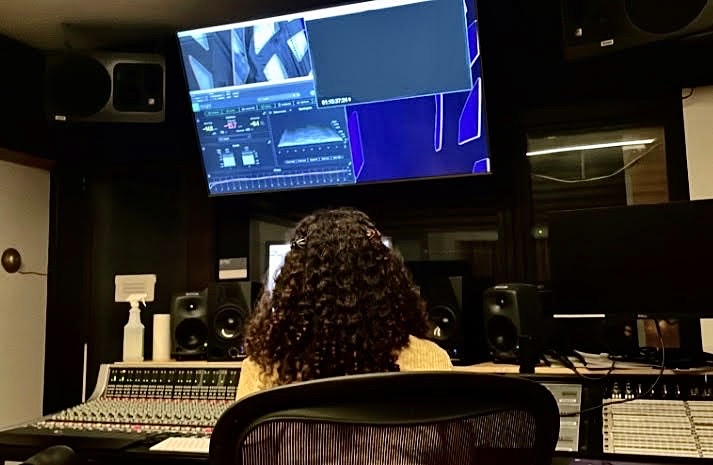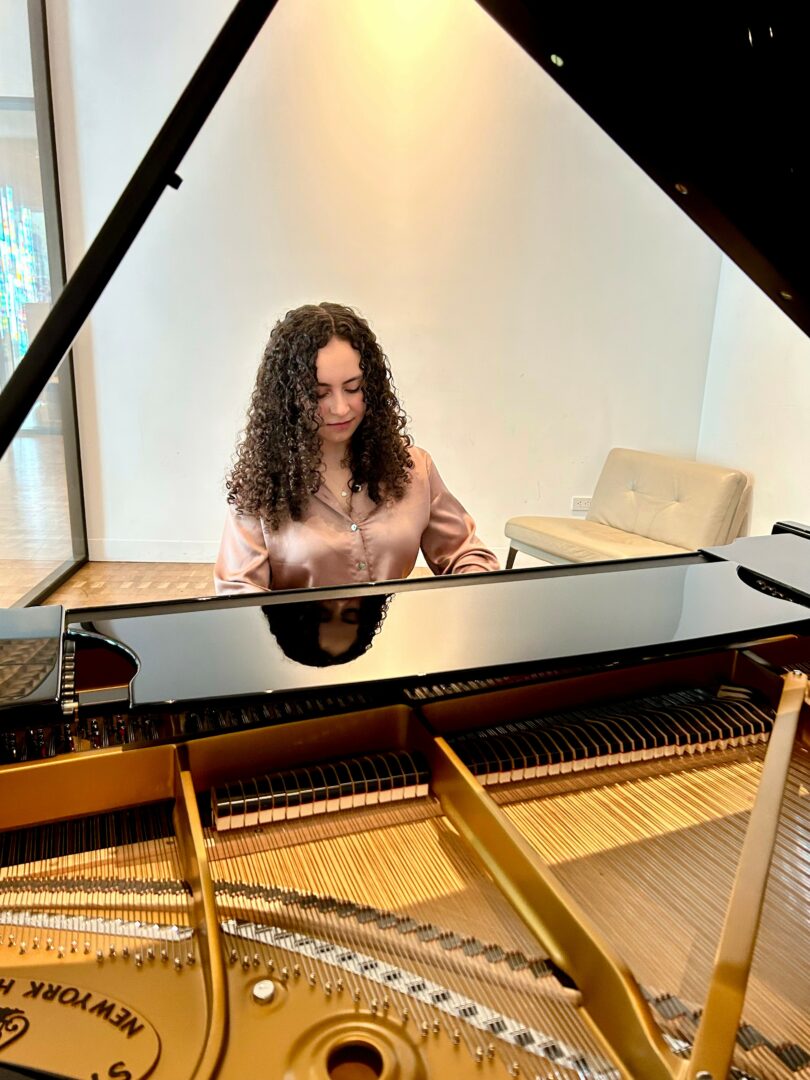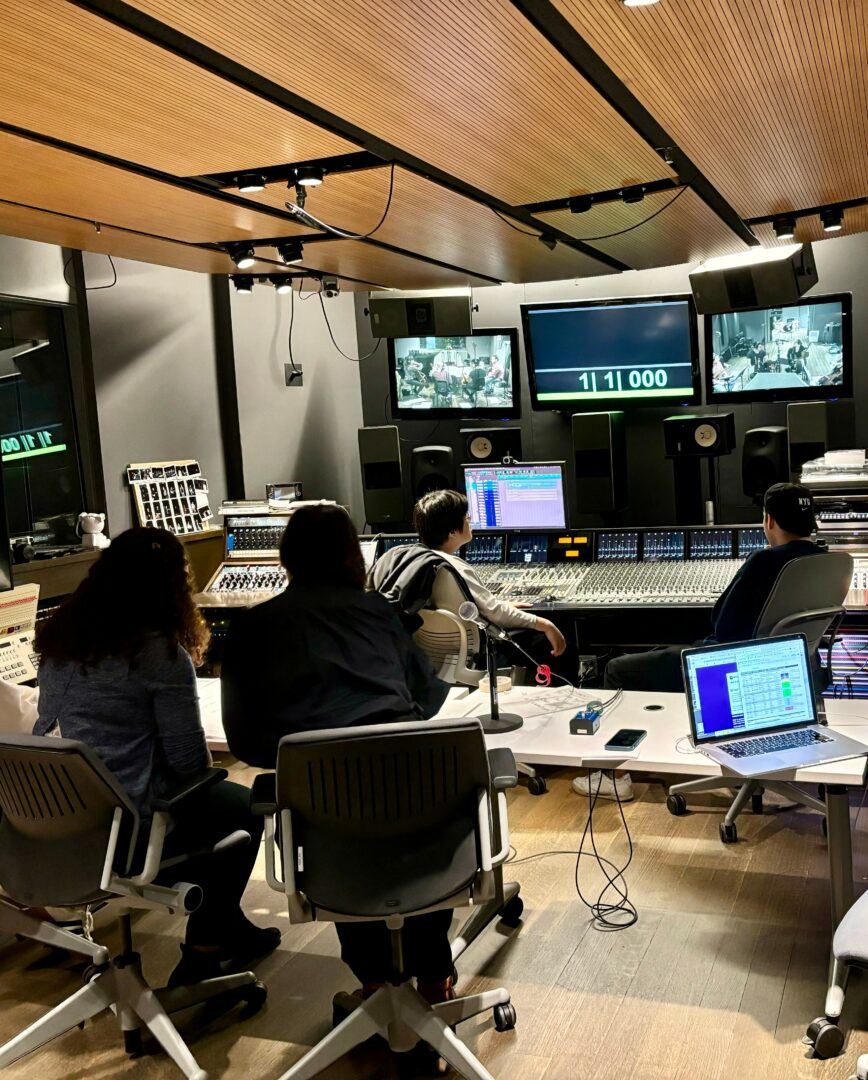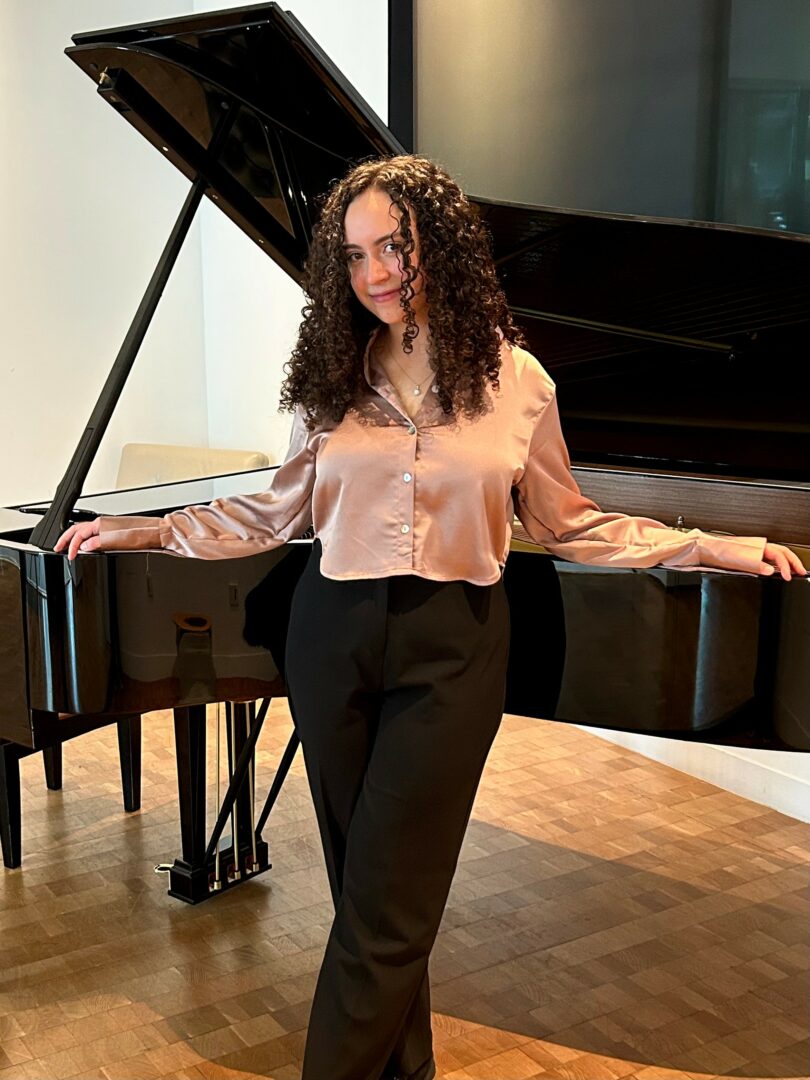We recently connected with Natalie Dolan and have shared our conversation below.
Natalie, first a big thank you for taking the time to share your thoughts and insights with us today. I’m sure many of our readers will benefit from your wisdom, and one of the areas where we think your insight might be most helpful is related to imposter syndrome. Imposter syndrome is holding so many people back from reaching their true and highest potential and so we’d love to hear about your journey and how you overcame imposter syndrome.
I think it’s less about overcoming it and more about gaining perspective. As I’ve grown as a musician and a collaborator, I’ve often found myself wondering if I deserve to pursue this career. I always want to know whether my work is “good” or “worthwhile,” but creative endeavors are hard to quantify, so it can be difficult to dispel the doubts.
When those doubts start to come in, I remind myself that no artist will ever create exactly the same work as another artist. Of all the composers working in film, for instance, every single one has a unique voice, and thus everyone brings a different perspective to the industry. Even when I face uncertainty, I can find confidence in knowing that my music adds something new to the artistic world. I can’t be sure that everything I write will be “good,” but I can be sure that I have created something unique that wouldn’t have existed otherwise.

Appreciate the insights and wisdom. Before we dig deeper and ask you about the skills that matter and more, maybe you can tell our readers about yourself?
I am a composer for film & media as well as for the concert stage, originally from the Philadelphia area and currently based in New York. I grew up with piano and violin lessons, orchestra and choir rehearsals, and musical theatre and dance performances, all of which led me to turn my focus to creating new music. I studied concert composition and piano at the Sunderman Conservatory of Music at Gettysburg College. After graduating, I went on to NYU Steinhardt to pursue a Master of Music degree in Music Theory and Composition: Screen Scoring. I have composed for a variety of short films, as well as a few podcasts, a video game, and live planetarium shows. I am also looking to expand further into the theatre world, whether through composing incidental music for plays or through writing my own musical (or, hopefully, both!).
My background in classical music and concert composition has played a large part in shaping my musical voice. My favorite style has always been that of the late Romantic composers: dramatic storytelling, beautiful harmonies, and emotionally moving orchestral swells. In my recent projects, I’ve been expanding more and more into electronic scoring, particularly in a hybrid setting with piano, strings, and other instruments. One of my favorite things about composing for the screen is the opportunity to experiment with different combinations of sound, working with filmmakers to determine what musical approach is best to tell the story.

If you had to pick three qualities that are most important to develop, which three would you say matter most?
The first priority for me will always be kindness. It can be difficult to separate friendships from competitive feelings and jealousy, especially when your peers are all pursuing very similar paths and may even be up against you for jobs. I’ve been lucky to have real support and camaraderie in every musical community I’ve found, and my fellow artists’ joy in their work continues to inspire me in mine. Receiving such kindness and generosity from those around me, and giving it in return, has been a major contributor to my continued resolve in an often uncertain field.
The second skill that has been significant for me is time management. In my media scoring work, I can spend a lot of time composing on my own, which means I need to shape my own schedule to ensure that everything is ready by project deadlines. A tricky aspect of this work style is scheduling my creativity — that is, finding the days and times that are best for me to write new music, while keeping in mind any deadlines and other responsibilities. Developing strong time management skills has been crucial in shaping my workflow.
A final area of knowledge that has been essential for me is listening to what’s out there. Throughout my life, there have been hundreds of film scores, classical pieces, Broadway musicals, and rock/pop songs that have inspired me and helped to shape my musical goals. I doubt that I would be working in this field without the music of my childhood favorite movies, and now I continue to find new works that expand my ideas of compositional possibilities. One of my greatest joys has been finding my own musical voice, and it’s empowering to know that I can always look to the voices of others for inspiration and motivation to keep creating.

One of our goals is to help like-minded folks with similar goals connect and so before we go we want to ask if you are looking to partner or collab with others – and if so, what would make the ideal collaborator or partner?
I am always looking for collaborators! Filmmakers, game developers, playwrights, fellow musicians — if you’re passionate about a project, I would love to hear about it. Feel free to reach out by email ([email protected]) or on social media (@nataliedolanmusic). I’m excited to meet you and learn about your work!
Contact Info:
- Website: https://www.nataliedolanmusic.com/
- Instagram: https://www.instagram.com/nataliedolanmusic/
- Facebook: https://www.facebook.com/people/Natalie-Dolan/100014145284920/
- Linkedin: https://www.linkedin.com/in/natalie-dolan-7b9aba187/
- Youtube: https://www.youtube.com/@NatalieDolanMusic
- Soundcloud: https://on.soundcloud.com/6uSD4dc5rwXQve336

Image Credits
Nina Feliciano
so if you or someone you know deserves recognition please let us know here.




